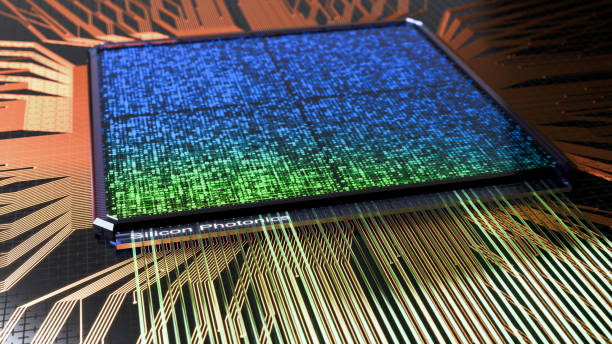Biohacking Beauty: The Fusion of Science and Skincare
In the ever-evolving landscape of beauty and wellness, a groundbreaking trend is emerging that promises to revolutionize our approach to skincare and self-care. Biohacking beauty, a cutting-edge concept at the intersection of technology, biology, and cosmetics, is gaining traction among forward-thinking individuals seeking to optimize their appearance and overall well-being. This innovative approach goes beyond traditional skincare routines, leveraging scientific advancements to enhance the body's natural processes and achieve transformative results. As we delve into the world of biohacking beauty, we'll explore its origins, current applications, and the potential it holds for the future of the beauty industry.

The roots of biohacking beauty can be traced back to the early 2000s when advancements in genomics and personalized medicine began to influence the cosmetics industry. As researchers gained a deeper understanding of the human genome and its impact on skin characteristics, beauty companies started exploring ways to incorporate this knowledge into their product development processes.
The Science Behind Biohacking Beauty
At its core, biohacking beauty relies on a deep understanding of cellular biology and the intricate mechanisms that govern skin health. This approach recognizes that true beauty starts from within, at the molecular level. By targeting specific cellular processes, biohackers aim to enhance the skin’s natural ability to repair, regenerate, and protect itself.
One of the key focus areas in biohacking beauty is epigenetics – the study of how environmental factors can influence gene expression without altering the DNA sequence itself. Epigenetic skincare products aim to activate or deactivate certain genes responsible for skin aging, pigmentation, and other cosmetic concerns. These formulations often contain ingredients like resveratrol, which has been shown to activate longevity genes, or niacinamide, known for its ability to influence genes related to skin barrier function.
Another important aspect of biohacking beauty is the microbiome – the diverse ecosystem of microorganisms that inhabit our skin. Recent research has highlighted the crucial role of the skin microbiome in maintaining skin health and appearance. Biohacking approaches in this area focus on nurturing beneficial bacteria and creating an optimal environment for a balanced microbiome, resulting in improved skin texture, hydration, and overall radiance.
Cutting-Edge Technologies in Biohacking Beauty
The world of biohacking beauty is constantly evolving, with new technologies emerging at a rapid pace. One of the most exciting developments is the use of artificial intelligence (AI) and machine learning algorithms to analyze skin conditions and recommend personalized skincare regimens. These AI-powered systems can process vast amounts of data, including genetic information, lifestyle factors, and environmental conditions, to create highly tailored beauty routines.
Another innovative technology gaining traction is 3D bioprinting of skin tissues. This groundbreaking approach allows scientists to create living skin models that can be used for testing new skincare formulations or even developing personalized skin grafts. While still in its early stages, 3D bioprinting holds immense potential for advancing our understanding of skin biology and developing more effective beauty treatments.
Nanotechnology is also playing a significant role in biohacking beauty. Nanoparticles can be engineered to deliver active ingredients deeper into the skin, enhancing their efficacy and targeting specific skin concerns with unprecedented precision. From gold nanoparticles that fight inflammation to lipid nanocarriers that improve the stability of volatile compounds, nanotechnology is opening up new possibilities in skincare formulation.
Personalized Nutrition for Skin Health
Biohacking beauty extends beyond topical treatments to encompass a holistic approach to skin health. Personalized nutrition plans based on genetic testing and microbiome analysis are becoming increasingly popular among beauty enthusiasts. These tailored diets aim to provide the body with the specific nutrients needed to support optimal skin function and appearance.
For example, individuals with a genetic predisposition to collagen breakdown may be advised to increase their intake of vitamin C and other collagen-boosting nutrients. Similarly, those with a tendency towards inflammation might benefit from an anti-inflammatory diet rich in omega-3 fatty acids and antioxidants. By addressing skin health from the inside out, biohackers are redefining the concept of beauty nutrition.
The Role of Wearable Devices in Biohacking Beauty
Wearable technology is playing an increasingly important role in the biohacking beauty movement. Smart skincare devices equipped with sensors can monitor various skin parameters in real-time, providing users with valuable insights into their skin’s health and needs. These devices can track factors such as hydration levels, UV exposure, and even pollution levels, allowing for more informed skincare decisions.
Some advanced wearables go beyond monitoring to actively treat skin concerns. For instance, LED light therapy masks use specific wavelengths of light to target issues like acne, hyperpigmentation, and fine lines. These devices bring professional-grade treatments into the home, empowering users to take greater control of their skincare routines.
Ethical Considerations and Future Outlook
As biohacking beauty continues to gain momentum, it raises important ethical questions about the limits of human enhancement and the potential risks associated with manipulating our biology. Critics argue that the pursuit of physical perfection through scientific means could lead to unrealistic beauty standards and exacerbate existing societal pressures.
Moreover, there are concerns about the long-term effects of some biohacking practices, particularly those involving genetic manipulation or untested technologies. As the field evolves, it will be crucial to establish robust safety protocols and ethical guidelines to ensure that biohacking beauty practices are both effective and responsible.
Looking ahead, the future of biohacking beauty appears bright and full of possibilities. As our understanding of skin biology deepens and technology continues to advance, we can expect to see even more innovative approaches to skincare and beauty enhancement. From personalized skincare formulations based on real-time biometric data to advanced gene therapies for skin rejuvenation, the potential applications of biohacking in the beauty industry are vast and exciting.
In conclusion, biohacking beauty represents a paradigm shift in our approach to skincare and self-care. By harnessing the power of science and technology, this emerging field is opening up new avenues for achieving optimal skin health and appearance. As we continue to unlock the secrets of our biology, the line between science and beauty will become increasingly blurred, ushering in a new era of personalized, data-driven beauty solutions. While challenges and ethical considerations remain, the potential benefits of biohacking beauty are undeniable, promising a future where true beauty is achieved through a harmonious blend of nature and science.






